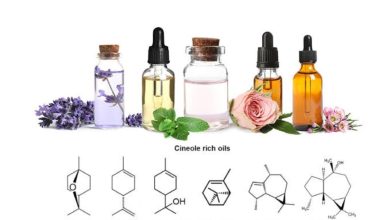Is Fenugreek Safe For Breast Enlargement?

Fenugreek is a clover-like herb native to the Mediterranean region, southern Europe, and western Asia. Its seeds, which smell and taste like maple syrup, have been used in cooking and as medicine. Fenugreek is used as an ingredient in spice blends and a flavoring agent in foods, beverages, and tobacco. Fenugreek extracts are also used in soaps and cosmetics.
In North Africa, Asia, and southern Europe, fenugreek was traditionally used for diabetes and to increase milk supply in women who were breastfeeding. Recently, the popularity of this herb has soared because it’s being promoted as a dietary supplement that can enhance the size, structure, and succulence of the female breast.
Breast Sizes
Female breasts can develop in various shapes and sizes. A person’s genetics, age, body weight, and hormone levels can all influence the shape and size of their breasts, areolae, and nipples.
The breasts can become bigger temporarily during pregnancy or when breastfeeding. Sometimes, breast shape can be related to weight gain or sexual arousal. Certain medications can cause breast swelling, too. Some people observe this when taking birth control pills.
No one has a perfectly symmetrical body. So it’s not surprising that the left and right breasts can vary in size, shape, volume, and location. In 2006, the British scientific journal Breast Cancer Research published data saying that only one woman in 504 had symmetrical breasts.
Experts from Emory University School of Medicine in Atlanta, Georgia, found that the left breast is bigger than the right in 62 percent of cases. In some people, the difference isn’t striking, whereas, in others, one breast can be a full cup size bigger than the other.
Usually, this is normal, especially in adolescent girls whose bodies are still developing.
Can fenugreek increase the size of your breast?
Yes, fenugreek is a known source of phytoestrogens which acts like an estrogen in the body, estrogen carries out a range of functions in the female body, including regulating the menstrual cycle and growth and development of breasts.
The estrogenic effect triggered by fenugreek can also cause your body to retain fluids. That means extra water gets trapped in your breast tissues and they feel or look a little bigger.
Beyond the increase in breast size, estrogens can also help prevent breast cancer. Estriol, the weakest of the three estrogens is thought to protect against breast cancer by softening the effects of its more potent sisters. A revisiting of the literature finds that estriol is vitally important, precisely because it is a weak estrogen. And a number of studies, published over four decades, have demonstrated that estriol’s unique and perhaps most important role, maybe to oppose the growth of cancers, including breast cancer. When lower-strength estriol is used topically, it does not raise the risk of breast cancer as stronger and/or synthetic estrogens do.
Studies have also shown that taking 600 mg of a specific fenugreek seed extract each day seems to increase interest in sex in healthy younger women with a low sex drive.
In how many days does fenugreek increase breast size?
The internet is full of fake fenugreek breast growth before and after pictures strategically positioned to make you buy specific fenugreek breast enlargement products with claims that it increases breast size in a specific number of days.
It is important to note that fenugreek supplements and products do not work in the same way for everybody. The effects of fenugreek can vary between people or for the same person on different occasions.
Differences in genetics, age, and gender are among several variables that influence individual responses to fenugreek. Additionally, fenugreek’s intended effect may also be altered by co-administered medications, underlying disease states, and food.
Some people can begin to see and feel the effects of fenugreek supplementation on their breasts in as little as 24 to 72 hours. Others may have to wait about 2 weeks and sometimes fenugreek just isn’t the answer to breast enlargement for some people.
How much fenugreek should I take for breast enlargement?
A good dose is usually 2 to 3 capsules (580 to 610 milligrams per capsule) three or four times per day but check the package instructions. In general, you can begin by taking one 610-milligram capsule three times a day. Then, slowly increase your dose to three capsules three times a day.
Women taking fenugreek for menstrual cramps (dysmenorrhea) use 1800-2700 mg of fenugreek seed powder three times daily for the first 3 days of menstruation, followed by 900 mg three times daily for the remainder of two menstrual cycles, has been used this might also work for breast enlargement but you need to discuss with your doctor.
What are the side effects of fenugreek breast enlargement?
In classical views, herbal remedies like fenugreek have been regarded as safe. Probably, this myth is also perpetuated by some healthcare providers when labeling herbal remedies as “natural” which are in turn mistakenly regarded as safe or in the worst-case scenario, safer than prescription medications.
The myth that herbal remedies can never be harmful is perpetuated and commonly believed by many patients. However, this myth lacks scientific evidence. Herbal remedies like fenugreek contain chemicals that could resemble some active ingredients present in many prescription medications; thus, these chemicals would act by similar pharmacological mechanisms of action and have the ability to cause side effects and harm. Some common unwanted effects of fenugreek include:
- diarrhea
- an upset stomach
- the urine, sweat, or breast milk taking on a maple-like odor
- dizziness
- headaches
Some people have had allergic reactions to fenugreek, although this is rare.
Pregnant women should avoid using fenugreek because it contains compounds that can stimulate contractions and may cause birth abnormalities.
Fenugreek can also act similarly to estrogen in the body, so it may negatively impact people with hormone-sensitive cancers.
In general, a person with any health issue should avoid fenugreek or use it cautiously. Talk to a doctor before trying it.
Fenugreek does not negatively interact with many drugs, but some of the herb’s compounds may perform similar functions as medications, so taking both may not be safe.
Understanding the risks of overdosing on fenugreek will require more research. As with any medicinal food or supplement, it is best to add fenugreek to the diet at a slow, steady rate.





